These Michigan congregations have seen an increase in giving during the pandemic. The Rev. David Bell, Executive Director of The United Methodist Foundation of Michigan, talks about drivers of generous giving.
KAY DEMOSS
Senior Content Editor
It’s been 13 weeks since Michigan United Methodists last worshiped together in-person, praying, singing, sharing Communion, listening to a sermon … passing the collection plate up and down the pews.
And, of course, what’s real in Michigan has also been the case across the nation during this season of safety precautions against coronavirus. Further, for many faithful disciples, spring was not just a time for no-church. It was also a time for no-job.
Heather Hahn, recently reported on the financial fallout for the denomination in a feature story for UM News, “Collection rates plunge as COVID-19 rises.” The report emerged from the May meeting of the General Council on Finance and Administration.
“For the first four months of the year, general church apportionment receipts in the U.S. dropped about $3.2 million compared to the same period in 2019,” Hahn wrote. April, so far, saw the steepest decline — with the collection rate down 26% compared to 2019 and 45% compared to 2017. “This indicates the impact that the coronavirus has had so far on general church collections,” Rick King, GCFA’s chief financial officer, told the board. Learn more in the full report.
Foundation director shares
The Rev. David Bell is a member of the General Council on Finance and Administration. He is also the Executive Director of the United Methodist Foundation of Michigan. Soon after returning from the spring meeting of GCFA, Bell shared this in the UMF Newsletter. “Church leaders are facing growing financial challenges as the global pandemic impacts church operational costs as well as individual personal finances. In the wake of decreased giving in many churches, finance committees are pressured to cut costs to pay ongoing required church expenses.”
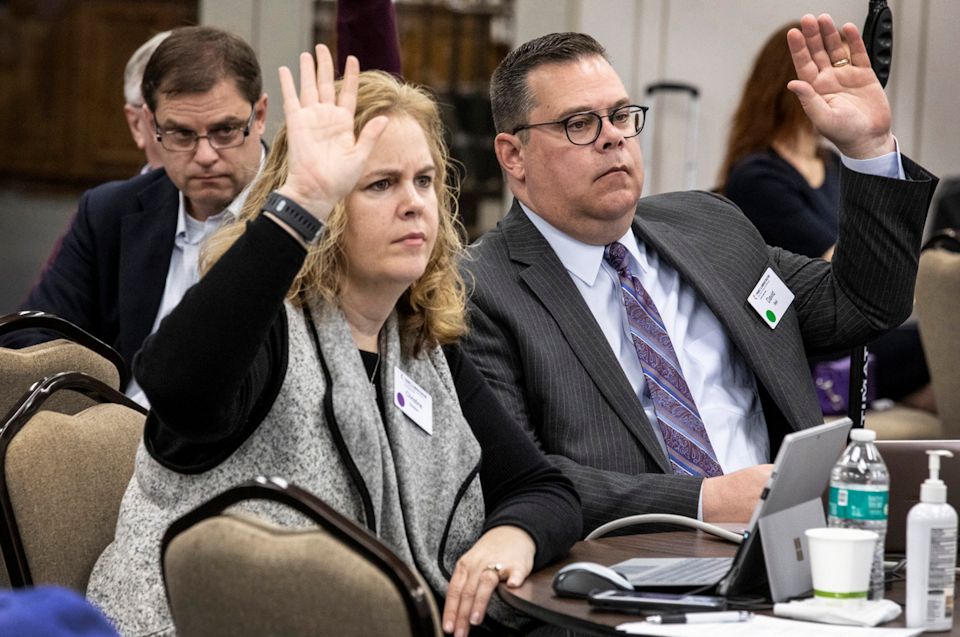
But that was only the first of his observations. The rest of the article offered encouragement. Bell continued, “Decreased giving certainly is not the scenario in all churches. In fact, several churches with strong online and electronic giving programs before COVID-19 are realizing up to 20% growth in charitable giving since mid-March.”
Clear purpose, vision, and belief in the mission of the congregation were cited as contributors to generous giving even as churches “navigate these unprecedented times,” Bell said. Read his full June 2, 2020 message and watch a helpful video, “Breaking Out of 1 Hour Sunday Morning.
In a recent survey sent to pastors by The Michigan Conference, several responded “exceptionally higher” when asked about financial giving during COVID-19. MIconnect contacted some of those leaders, and we report their feedback here.
Being the church alive
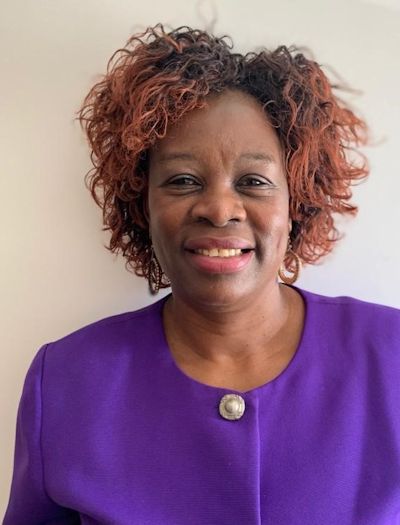
Rev. Beatrice Alghali, the pastor of Azalia and London United Methodist churches, Heritage District, asserts, “People will give when we tell them what the money received is used for. They want to hear about the ministry and mission.” She adds, “My experience has taught me that when congregants are told how their funds are being used, giving is not an issue. They give wholeheartedly. We ask them to give from their hearts rather than tell people what percentage to give.”
Kalamazoo First Senior Pastor, Steve Charnley, also talks about mission as the foundation of the congregation’s faithful giving during the pandemic. “I firmly believe that the generosity of our congregation is directly proportional to how we ‘give ourselves’ to the community,” Charnley reflects.
Last May, a $1 million capital campaign, The Dream Fund, supported a partnership with five other agencies to provide affordable housing. Kalamazoo First’s sponsorship of JFON assists refugees and asylum seekers in the community. Every Sunday night meals with the homeless have been interrupted by COVID-19 building closure. Still their Helping our Neighbors ministry continues remotely with the delivery of groceries and paying for emergency lodging and medicine at a local day shelter.
“The donations to this last ministry have tripled in the past three months with some of our members signing over their stimulus checks,” Charnley says. He expresses his firm conviction, “Being the church alive in the world and seen to make a difference in practical ways in our neighborhoods is the very best stewardship campaign.”
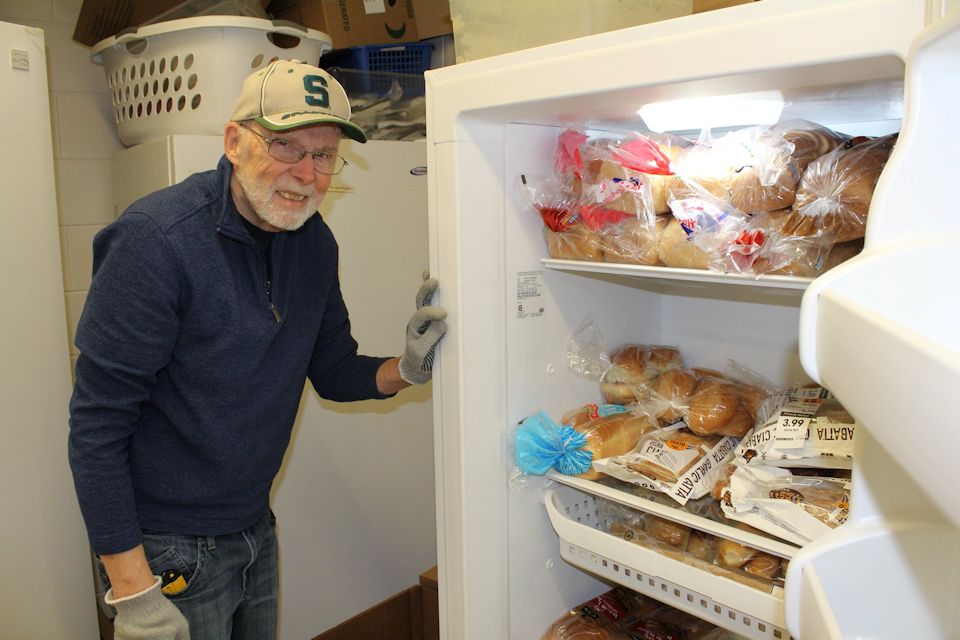
Pastor Alghali agrees. “In March, I reminded the congregation that although we are at home, the missions of the church have to continue.” She kept the focus on the help their dollars would provide. “I am not mentioning nothing about paying bills,” she observes. “That is a language we need to avoid using. People are turned off when you mention paying bills when they cannot pay their own home bills.”
Strong bonds of love
The Rev. Linda Farmer-Lewis serves Dimondale UMC, Mid-Michigan District. “As soon as the shut-down came on March 11,” she recalls, “our leaders, especially the Ad Council Chair, and I began to discuss the implications of the COVID crisis for our church.” Dimondale has an average attendance of 45 and is situated in a small community adjacent to Lansing. “We are an older congregation, which makes us physically vulnerable but financially stable,” Farmer-Lewis explains.
While leaders worried that finances might tumble, that did not happen. “The reality is,” says the pastor, “we have a tremendously loyal church who love each other and the Lord and value being United Methodist.” They were able to act on that loyalty thanks to an offer from the Treasurer’s Office of the Michigan Conference to jump-start online giving with two free months.
“A few leaders front-loaded their offerings for the year in a lump sum to stabilize our revenue while we figured out the next steps.” Then something unexpected happened. “What surprised us was that despite the front-end loading, our rank and file membership not only continued to give at their normal level but upped it!” Added to that finance step, two other actions “might have enhanced our story,” Farmer-Lewis reflects.
On Day One of the shut-down, the Ad Council chair immediately put together a buddy calling system. Those in the congregation without internet were assigned weekly callers. “And we just finished a new pictorial directory,” the pastor adds. “We mailed it to each member.” While they were no longer worshiping in the building, they had each other’s portraits in hand. Worship, broadcast from the pastor’s home on Facebook, showed an increase in attendance online, averaging 12o views per week. “Of those new hits,” Farmer-Lewis says, “we have not seen new money, but we are getting favorable comments that provide the opportunity to reach out and connect.”
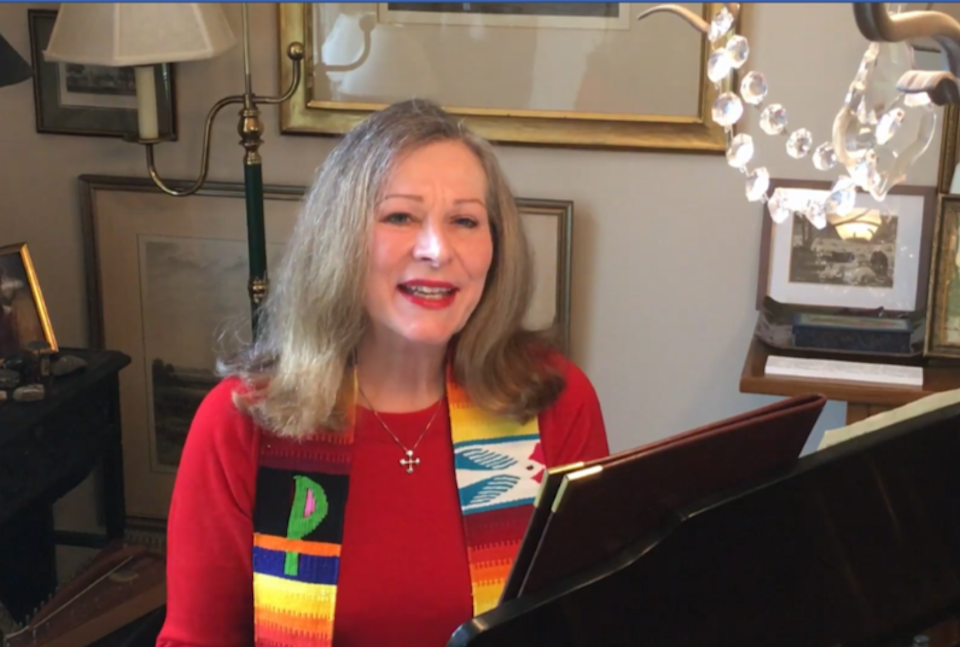
Like pastors Charnley and Alghali, Linda Farmer-Lewis credits missional outlook as a significant factor in generous stewardship. “We desire to be of service to the community and the world and are active in that mission. This small congregation gives away around $1,500 a month in money and Pantry donations. It is what they do and who they are.” She concludes on a Wesleyan note. “They have kept steady in this crisis because they do all the good they can, all the time they can, for so ever long as they can. Praise God!”
By the numbers
Some churches do like “the math.” Novi UMC, Heritage District, responds well to a more direct financial appeal. Pastor June Marshall-Smith reports that the congregation participated in Dave Ramsey’s Financial Peace University about five years ago. “That was one of the most beneficial programs we have ever done,” she states. “It issued a breath of the Holy Spirit of positiveness into the entire church.” Marshall-Smith describes how it enhanced members’ personal financial well-being as well as their giving to the church. Her counsel is, “I would run Financial Peace University at a minimum of every other year.”
So, the congregation went into the COVID crisis from a position of strength. When the stay-at-home time came, “We were quick to remind the congregation, in a letter, that we expected challenges,” the pastor says. The Finance Committee believed that it needed to quantify what was needed. “To give perspective in the letter, we suggested that if members were able to give an extra 50% additional tithe for four months, that would be a blessing. That was ‘our ask.'”
Some were able to pre-pay the amount immediately. “Our Finance Committee was, understandably, relieved,” notes Marshall-Smith.
Using good tools
“Online giving can be frightening when you are a senior citizen,” says Shepardsville UMC pastor, Judy Hazle. The congregation was introduced to online giving four years ago, and many struggled with the concept. “But those who do the monthly e-check now find it one less thing to worry about during the pandemic,” she explains. In the past few months, those who mail in checks have also switched to monthly giving. During this time, when the church can’t meet, weekly letters have been mailed to encourage generous giving. “Once a person does electronic giving and sees the stress it takes off them, they will not want to go back,” Hazle observes.
Rev. Charnley also remembers some bumps in the stewardship road when online giving was first discussed. Charnley recounts, “I’ll never forget the first conversation we had in the Finance Committee about moving to online giving. Most of the members weren’t sure it really was necessary, when the youngest member of the team spoke up and said, ‘We don’t use checks anymore. In fact, we often have to stop at the ATM on Sunday morning to pick up cash for our offering.’ That did it; soon we were online financially, and are we glad we are given our current circumstances.” Now every worship service and digital communication contains links and instructions to give through Vanco. “It has been important to streamline and simplify the process. We’re currently looking to move to QR code, as well.”
Azalia and London UMCs are using a variety of channels to put money in the bank. Online giving is new during these three months of stay-home. Pastor Alghali comments, “We are not technologically savvy, but we are improving.” She believes that the various online tools people have embraced have helped. “Azalia/ London show a very significant increase in giving during this time of lock-down as they were given various options to give,” she offers.
Pastor Bea Alghali’s invitational approach also inspires generosity. “We worship by conference call. I ask them every one to imagine they are in our sanctuary. My greeting is, ‘Are you in your pew yet, with a smile?’ At the time of the offering, I remind them to send their tithes and offerings to our financial secretary. And I always thank them for being the best stewards ever.”
The use of online giving has evolved over ten years at Novi, and Pastor June Marshall-Smith describes the process that began within the Finance Committee. “In 2009 we were constantly on razor’s edge every month, and the stress was wearing on the Finance Committee. Then I got them talking about more than just money. That turned the corner. Members of the committee began giving positive testimonies about stewardship.”
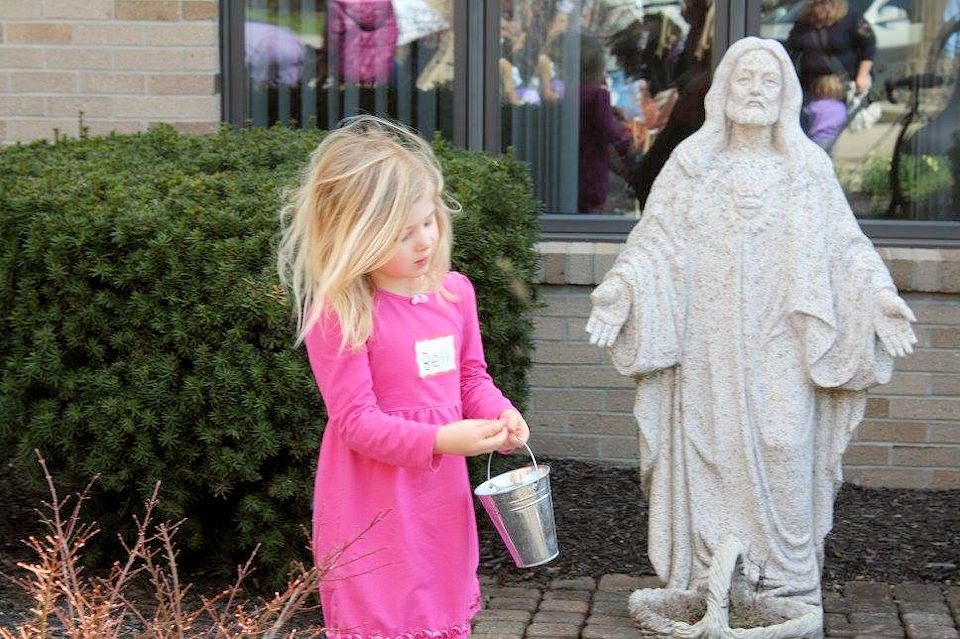
Novi uses mail, PayPal, Vanco, and Text to receive member contributions. “About 70% comes through Vanco,” Marshall-Smith says. She delights in one member who has long used a phone app called Give Plus. “She sits in the pew, listening to a ministry or mission testimony. Then she starts giggling as she pulls out her phone and drops money in the church account to support that ministry.” The woman has told her pastor that “it feels spiritual to her to give when the Holy Spirit whispers in her ear during worship.”
The bottom line, it takes some selling to establish an understanding and comfort level with online giving, but that effort pays off.
Guided by Christ
In his message released on June 2nd, Rev. David Bell urges, “As you live into a new way of being the Church in a COVID-19 world, do not lose sight of your purpose, mission, and vision. Church leaders, like you, are called to help the church stay focused on its clear goals.” Leaders like Beatrice Alghali, Steve Charnley, Linda Farmer-Lewis, Judy Hazle, and June Marshall-Smith have helped their congregations stay focused during the health crisis. Many others across the Michigan Conference are doing the same.
Bell concludes, “We do not have a directional chart, like a map, leading us into this new age, but we always have a clear beacon pointing toward God through Jesus Christ. My prayer for you is that you continue to ask yourself, ‘What am I learning during these unprecedented times?’ and ‘How may I apply this learning to further God’s Kingdom in my family, in my church, in my community, even around the world?'”
~ Find help with online giving in the Health Crisis Toolbox of the Michigan Conference. Michigan churches are in the process of returning to in-person worship. Here’s what the Michigan Conference Principles and Directions suggest about the offering: “The continuing development of online and auto-pay giving is strongly encouraged; for the Sunday offering do not pass offering plates – have them available in the sanctuary or have drop boxes in the hallways or at the church office.”
Last Updated on October 27, 2023

